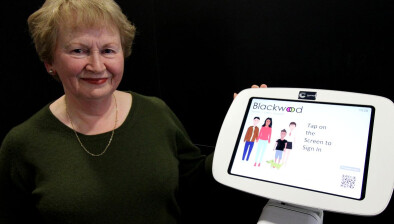Regulator to engage with Glasgow and Edinburgh over ‘systemic homelessness failures’

Homelessness duties provided by Glasgow City Council and the City of Edinburgh Council are to be monitored by the Scottish Housing Regulator (SHR) amid concerns that demands for services now exceed their capacity to respond.
Earlier this month, the Regulator published a statement that highlighted the increasingly challenging context for councils’ delivery of services to people experiencing homelessness. It concluded that as a result of this context, some councils were finding it increasingly difficult to fully meet their statutory duties on homelessness, particularly providing suitable temporary accommodation to people experiencing homelessness.
The statement further highlighted that in some councils there is now systemic failure in the delivery of homelessness services. The Regulator has now concluded that Glasgow City Council and the City of Edinburgh Council are impacted by this systemic failure in homelessness services, and has updated their engagement plans accordingly.
In recent weeks, both local authorities have declared housing emergencies in their respective regions with Edinburgh citing record homelessness figures, a severe shortage of social rented homes and spiralling private rental costs, and Glasgow highlighting “unprecedented” pressures in relation to homelessness.
In updated engagement plans for Glasgow and Edinburgh councils, the Regulator said it will continue to monitor, assess and report on both councils’ performance in discharging its duties to people who are homeless, and will engage with the local authorities to promote improvement where this is possible.
SHR said it will engage with Glasgow in particular about the following areas:
- how people access the homelessness services provided by Glasgow City;
- the provision of temporary accommodation by Glasgow City to people who are homeless; and
- outcomes for people who are homeless.
In November 2020, SHR published the findings of its inquiry under section 42, Part 4 of the Housing (Scotland) Act 2010 into Glasgow City’s services for people experiencing homelessness. The Regulator found that Glasgow City Council failed to ensure it had enough suitable temporary accommodation prior to the coronavirus pandemic and did not provide temporary accommodation to significant numbers of people when they needed it.
In response to the findings and recommendations, Glasgow is now implementing a new temporary accommodation strategy within its wider programme of work to transform its services for people who are homeless.
The Regulator added that it will engage with Glasgow City Council on a monthly basis about its progress.
In Edinburgh, the SHR is to engage with the council in particular about its provision of temporary accommodation to people who are homeless, but also regarding its service quality and tenant and resident safety.
The Regulator said: “To assess the risk to social landlord services we have reviewed and compared the 2021/22 service quality performance of all social landlords to identify the weakest performing landlords. We will therefore engage with City of Edinburgh about complaints handling, repairs right first time and satisfaction with repairs, rent arrears and tenancy sustainment.
“In July 2022, we contacted City of Edinburgh following media reports of dampness and mould in some of its high-rise blocks in Muirhouse and Moredun. City of Edinburgh shared an improvement plan that it had developed following a recent review of its approach to managing reports of dampness.
“City of Edinburgh has made progress with its improvement plan, including recruiting additional resources to investigate and address reports of dampness and mould in tenants’ homes. City of Edinburgh has also told us about its plans to invest in retrofit and energy efficiency improvements across the city, including in Muirhouse and Moredun.
“We are seeking assurance about City of Edinburgh’s understanding of the scale of dampness and mould across the city, and the steps it is taking to address this, including how it is managing reports of health concerns being raised by tenants.
“of Edinburgh does not fully comply with the electrical safety and fire detection requirements of the Scottish Housing Quality Standard. City of Edinburgh is currently progressing inspections to provide Electrical Installation Condition Reports (EICRs) and to install integrated smoke and heat alarms in all of its tenants’ homes.”
Both Glasgow City Council and the City of Edinburgh Council are working openly and constructively with the Regulator.
John Jellema, assistant director of regulation, said: “The demands on Glasgow and Edinburgh councils now exceed their capacity to respond. We therefore take the view that both Councils are impacted by systemic failure in the delivery of their services to people experiencing homelessness. This is particularly the case in the provision of temporary accommodation where, despite improvements made by both councils, they are not always able to provide such accommodation when they should and regularly breach the Unsuitable Accommodation Order when they do provide temporary accommodation.
“We are ready to work with the Scottish Government, councils and other stakeholders to identify and implement actions that will address these systemic issues. We will also engage with Glasgow and Edinburgh councils to seek assurance that they continue their best efforts to improve where they can.
“We continue to engage with other councils, and we will update the engagement plans for those councils to reflect our assessment in the coming weeks.”








